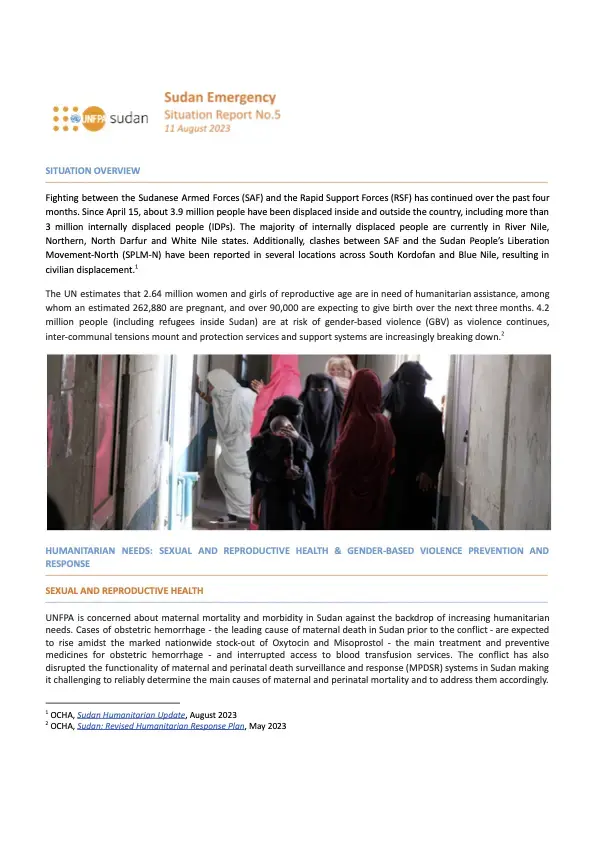Ongoing fighting between the Sudanese Armed Forces and the Rapid Support Forces has led to significant displacement over the last four months (since April). The number of displaced individuals has now surged to 3.9 million, with 3 million people internally displaced.
UNFPA is concerned about the rising maternal mortality and morbidity rates in Sudan, compounded by the escalating humanitarian crisis. The scarcity of Oxytocin and Misoprostol, essential medications for treating and preventing obstetric hemorrhage – a leading cause of maternal death prior to the conflict – is expected to contribute to a rise in cases. Approximately 2.6 million women and girls of reproductive age require humanitarian assistance. Among them, around 262,880 are pregnant, and over 90,000 are expected to give birth within the next three months. The escalating inter-communal tensions has put 4.2 million people, including refugees within Sudan, at risk of gender-based violence as protection services deteriorate.
The Sudanese healthcare system has been severely impacted, with over 80 percent of hospitals now inoperable and continued reports of attacks on healthcare facilities. The demand for lifesaving medical supplies and treatments is skyrocketing, especially in regions accommodating internally displaced populations where functioning healthcare facilities are overwhelmed.
Despite obstacles and limited access, UNFPA is adapting its efforts across Sudan to prioritize critical humanitarian response. A temporary presence has been established in Port Sudan, Red Sea state, while response efforts have been escalated from Madani, Aj Jazira state, to coordinate nationwide humanitarian interventions.


